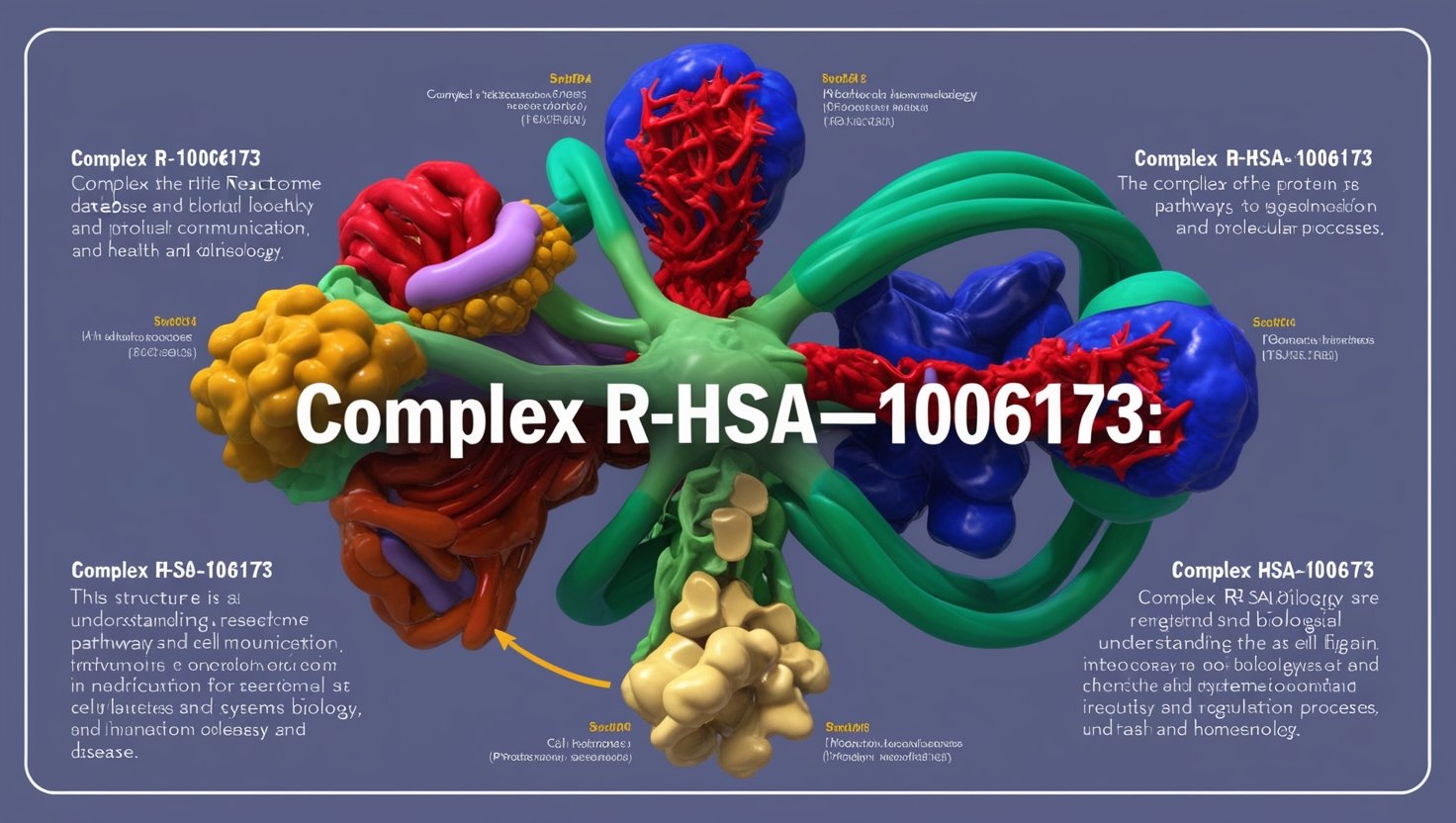In biological research and systems biology, the term “complex R-HSA-1006173” refers to a specific protein complex that plays a vital role in various cellular processes. This article will explore the complex R-HSA-1006173 in detail, including its structure, function, significance, and implications for health and disease. We aim to comprehensively understand this complex, making it accessible to a broad audience.
What is Complex R-HSA-1006173?
Contents
Complex R-HSA-1006173 is part of the Reactome database, which provides detailed information about molecular pathways and biological processes. Specifically, this complex is associated with signaling pathways crucial for cell communication and regulation. Understanding complex R-HSA-1006173 is essential for researchers in molecular biology, biochemistry, and pharmacology fields.
Structure of Complex R-HSA-1006173
The structure of complex R-HSA-1006173 consists of various proteins that interact with each other to perform specific functions within the cell. The proteins within this complex are known to bind to multiple ligands, which can trigger a cascade of cellular responses. Each protein in complex R-HSA-1006173 has a unique role, and their interactions are tightly regulated to maintain cellular homeostasis.
Researchers have utilized advanced techniques such as X-ray crystallography and cryo-electron microscopy to study the structure of complex R-HSA-1006173. These methods allow scientists to visualize the arrangement of proteins within the complex, providing insights into how it functions at a molecular level.
Functions of Complex R-HSA-1006173
Complex R-HSA-1006173 is involved in several critical biological processes. Some of its primary functions include:
- Signal Transduction: The complex plays a crucial role in transmitting signals from the cell surface to the interior, which is essential for cellular responses to external stimuli.
- Cell Growth and Differentiation: Complex R-HSA-1006173 regulates cell growth and differentiation, influencing how cells respond to various growth factors.
- Apoptosis: This complex is involved in programmed cell death, a vital process for maintaining tissue homeostasis and eliminating damaged cells.
These functions highlight the importance of complex R-HSA-1006173 in maintaining healthy cellular activities and its potential role in disease processes.
The Importance of Complex R-HSA-1006173 in Health
Understanding complex R-HSA-1006173 is critical for several reasons. First, it helps researchers identify how disruptions in this complex can lead to various diseases. Mutations or alterations in the proteins within complex R-HSA-1006173 may contribute to cancer, diabetes, and other chronic conditions.
Complex R-HSA-1006173 and Disease
- Cancer: Abnormalities in the signaling pathways associated with complex R-HSA-1006173 can lead to uncontrolled cell proliferation, a hallmark of cancer. Understanding this complex may provide insights into potential therapeutic targets for cancer treatment.
- Diabetes: Complex R-HSA-1006173 may also play a role in insulin signaling. Dysregulation of this complex can affect glucose metabolism, contributing to insulin resistance and diabetes.
- Neurodegenerative Diseases: Research suggests complex R-HSA-1006173 may be involved in neuroprotective pathways. Disruption in its function could potentially lead to diseases like Alzheimer’s or Parkinson’s.
Therapeutic Implications
The knowledge gained from studying complex R-HSA-1006173 can lead to the development of targeted therapies. For example, drugs that modulate the activity of proteins within this complex may offer new treatment options for diseases associated with its dysregulation. Researchers are continuously exploring ways to leverage this information for therapeutic benefits.
Research and Experimental Studies
Numerous studies have focused on complex R-HSA-1006173 to elucidate its functions and implications in health. These studies often involve:
- In vitro experiments: Using cell cultures to study the effects of manipulating complex R-HSA-1006173 on cell behavior.
- Animal models: Examining the role of this complex in vivo to understand its contribution to disease development and progression.
- Clinical research: Investigating the relevance of complex R-HSA-1006173 in human diseases, aiming to correlate laboratory findings with clinical outcomes.
By employing these research strategies, scientists can gather valuable insights into the role of complex R-HSA-1006173 in various biological contexts.
Case Studies
Several case studies have highlighted the significance of complex R-HSA-1006173 in specific diseases. For instance, a study investigating breast cancer showed that alterations in the signaling pathways involving this complex could lead to more aggressive tumor behavior. Another research focused on type 2 diabetes revealed that targeting components of complex R-HSA-1006173 may improve insulin sensitivity in diabetic patients.
These findings underscore the need for ongoing research into complex R-HSA-1006173 and its broader implications in health and disease.
Future Directions in Research
As our understanding of complex R-HSA-1006173 continues to evolve, several future research directions emerge:
- Functional Studies: Further investigations into the specific roles of individual proteins within complex R-HSA-1006173 will enhance our understanding of its overall function.
- Therapeutic Development: Continued exploration of targeted therapies based on the insights gained from complex R-HSA-1006173 may lead to new disease treatment options.
- Personalized Medicine: Research into the variability of complex R-HSA-1006173 among individuals may contribute to customised approaches in treating diseases, particularly in oncology and endocrinology.
Conclusion
In conclusion, complex R-HSA-1006173 is a crucial cellular signalling and regulation component. Its role in various biological processes makes it a significant subject of study in health and disease. By understanding complex R-HSA-1006173, researchers can uncover the mechanisms underlying multiple conditions and potentially develop new therapeutic strategies.
The ongoing research into complex R-HSA-1006173 is vital for advancing our knowledge of biology and improving health outcomes. As we continue to explore its complexities, we may find novel ways to tackle some of our time’s most pressing health challenges. The journey to fully understand complex R-HSA-1006173 is ongoing, and its potential to impact medicine is vast.




